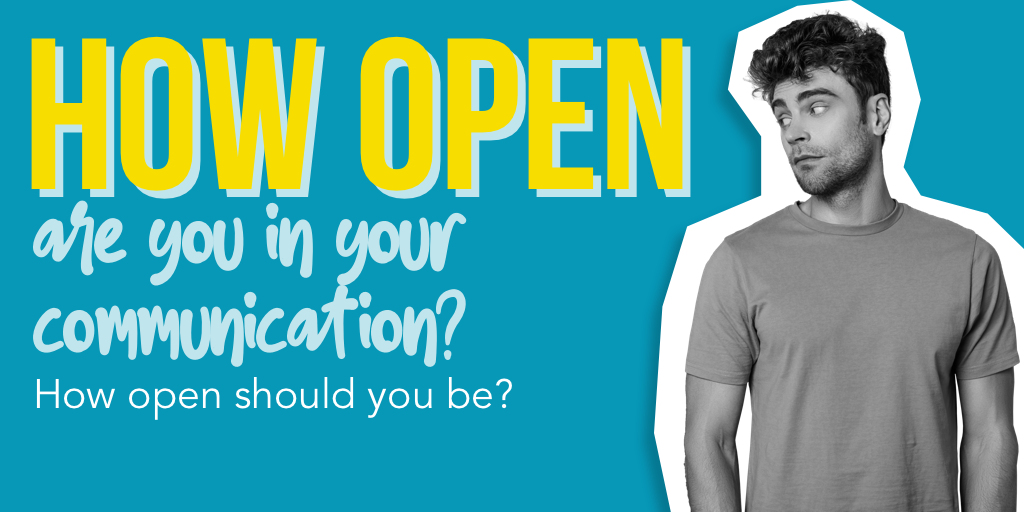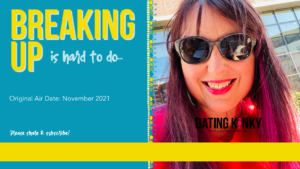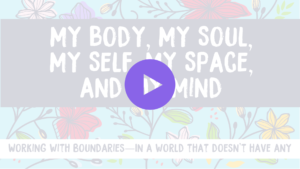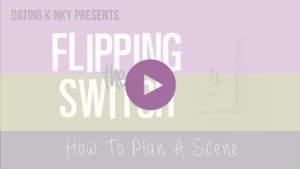Four weeks ago, I wrote that communication is a tool, not a solution. I mentioned that without a few key elements, communication is more likely to harm than to heal. Those are:
- Priorities
- Openness
- Respect
- Compassion
- Autonomy
Two weeks ago, I wrote “What are you trying to get out of this conversation?” about priorities.
Today, I’m talking about openness.
Because, well, I’ve found that it can be a huge tripwire in our quest for connection.
People are often not open for VERY good reasons. We’ve been hurt. We’ve had our confessions used against us. We have doubts about whether what we think and feel is even OK…
And all of that is valid.
It does not, though, change the fact that good communication requires a certain level of openness.
How open should you be in communication?
First, I’m gonna say that I really don’t like ‘should’ questions. I’m not gonna should all over you, and I don’t want you should-ing all over yourself.
But the simple (and somewhat trite) answer is: You should be as open as you need to be to make the most of your priorities in your current communication, balanced against your personal risks.
What does that even mean, though?
Well, I was having a conversation the other night with a friend of mine. Just sitting on the balcony, eating, chatting about life and love and…well, everything. I said in response to something that had happened locally, “No one has a right to know who I choose to have sex with, period.”
I went on to say that I do choose to tell people, some people, but that no one has a right to that information.
So, let’s say that I’m in a conversation about how I do sex with someone I may want to do sex with in the future. What do I need to say, to match my priorities? Well, first I need to know my priorities. Let’s say they are:
- I want understanding.
- I want trust.
- I want consent.
Those three things are critical to any discussion about sex I might have with someone.
And, if I’m talking about sex with someone, I probably want to also have sex of some sort with them. But that’s a desire, not the priority. Because the sex MUST come after we have understanding, trust, and consent.
And if we have understanding, trust, and consent, and sex doesn’t happen, I’m still happy with the communication.
So, how open would I have to be in a conversation about sex to achieve those three things? A few thoughts come to mind:
- They would have to know I’m nonmonogamous. That is not optional for me.
- I would have to mention that I am HSV-1 positive. I was born with it, and I have never passed it on, but there ya go.
- I would want them to understand and agree to my personal safe-sex risk profile.
- I would want to assure them that I accept their desires even if I don’t agree to all of them.
- I want to know that they are enthusiastic not only about having sex with me (if they are), but in the ways I want sex, and with all those aforementioned stipulations in place.
So, I have to be that open.
EXACTLY that open.
When I say I’m nonmonogamous, and I am open to possibly having sex with them, that is enough. If they ask how many people I have slept with in my life, I can decline. That’s not (to me) a step towards understanding, trust (it actually erodes trust from me that they ask), or consent.
It may be to them.
Which is their right.
I will decide that we have reached understanding and bow out with the trust and consent, because those are not going to be there for me.
And I’ve shared exactly as much as the conversation needs.
They may WANT to know more.
They may ask more.
I MAY want to explain things.
I may not want to say things that are important, for fear of missing out on the sex. But then, I’m not fostering understanding, trust, and consent, am I?
What if I didn’t tell them I’m nonmonogamous?
Well, they could still consent to sex with me, legally, yes? Yes.
But WOULD they consent if they knew I had a serious long-term partner? Maybe not. And that is their right.
Here’s another example: hurt.
This morning I realized I was holding some resentment and hurt. I dug down and figured out what it was. Let’s make it super-simple for the sake of discussion:
I want something, and I’ve mentioned it a few times. It’s not happened, and while I can always command it, I don’t want to ALWAYS HAVE to command it.
And I was a bit hurt that I’d mentioned it a couple of times with no pick-up from my partner. Partially because that’s unusual. Partially because I know that our week is crazy busy, and he’s got plans that will take time and energy away from it potentially happening.
Ugh.
So, I could say, “I want X,” and I know it will happen.
Or I could not say it and just feel bad about not getting it.
Or, I could blow up and make it his fault for being a horrible person and not wanting what I want in this case (assuming he doesn’t want it, because he’s horrible, of course).
But what do I want out of the communication?
- I want to be heard and understood.
- I want to know that he wants what I want—or if he doesn’t, why.
So, if I really want to be heard and understood, how open do I need to be?
Anyone feel a bit of a catch there? Because for some people just thinking about that makes our brains shy away.
How open do I need to be?
I have to be fully open about how I feel in that moment to have any possibly of the desired result of being heard and understood.
Because how can he understand me, if I am not willing to show him me? If I’m not willing to say, “This is how I feel, this is what is hurting,” then is it even possible he’ll understand?
Possible? Yes.
Probable? No.
And I’m sabotaging my own attempts at communication if I’m not open.
A few more examples: True but not the truth.
A vanilla friend asks me what I did this past weekend. I said I went roller skating and out dancing with some friends. That’s true.
I did not say I rented out a skating rink for 40+ kinky skaters and hosted a get-together. Or that I took a near-stranger home for some raucous sex. Or that we went dancing to a gay club. Or…whatever.
That truth is none of their business.
A friend asks about someone they met me with. I say they are an amazing person, worth getting to know. That’s true.
I do not say that they chased me across the bed, giving me dozens of orgasms and making me scream in pleasure until I nearly fell off on my head.
That truth is none of their business.
And one more: A friend who knows I’m kinky but doesn’t know details asks me a very direct question. I ask them in return if they really want to know.
The way they answer gets them a true answer without a lot of details filled in, to see how they handle it, if they ask more questions, etc.
I draw the line where I feel comfortable drawing it.
It’s not a line I feel anyone else can draw for you.
For example, I’ve had people tell me that they believe they have a right to know how many people someone has slept with (their “number”).
I believe no one has a right to that.
This is my boundary. I draw that line. They cannot draw it for me. I cannot draw it for you.
Openness is, to me, a give and take.
I give openness, then I watch for respect, compassion, and autonomy from my partner.
If they display those, I give more openness.
If not, I not only don’t give more, I reassess our potential for communication and interaction moving forward. Because the ONLY reason I am as open as I am to others is to create a win-win situation in our communication. And if they are not team players, I will likely stop wanting to play the game.
What are your thoughts?
How open are you in communication?
Are you open enough? Are you authentic with your words and feelings? Do you offer what you need to offer to make your priorities happen?









